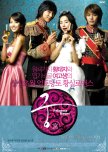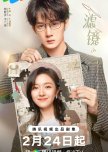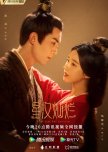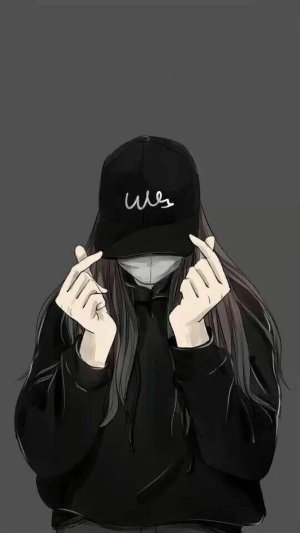
This drama had potential — I’m talking serve me royal romance on a silver platter potential. The first few episodes? Cute. Promising. And then? It tripped, stumbled, and face-planted into messy plots, childish schemes, and characters making decisions like their brains were on airplane mode.
Let’s break it down:
First up, the Crown Princess. I don’t even know where to begin with her. She’s out here acting like the world’s against her, crying in corners, yet REFUSING to help herself. Girl, it’s not character development if you just stay stupid the whole show. Not once did she think, “Maybe I should speak up for myself.” Nope. Just tears, whining, and questionable choices.
And the Crown Prince? He’s emotionally constipated, sure, but he at least tries in his cold, awkward way. I’ll give him half a star for effort. But she? She’s busy emotionally bonding with the OTHER prince like she’s not a whole married woman. And then has the nerve to get upset when the Crown Prince breathes near another woman. The math ain’t mathing.
Don’t even get me started on Second Female Lead Syndrome. This girl is the president of Delusion Nation. If you wanted the man, SAY YES the first time. But no, you chased status and now you’re salty because someone else has what you didn’t want when it was offered. Girl. Heal.
And the palace schemes? Please. I’ve seen elementary school drama with more depth. How are the royal adults THIS clueless? I’m embarrassed for them.
Now, for the fun part:
Kokowa Drama Starter Pack Checklist:
✅ Doormat Female Lead with Negative Self-Esteem
✅ Emotionally Damaged, Cold Male Lead with Hidden Feelings
✅ Clingy, Whiny Second Male Lead who needs to sit down
✅ Delusional Second Female Lead living in her own K-Drama fantasy
✅ 99 Misunderstandings for absolutely no reason
✅ Love Confessions happening at the worst possible moments
✅ Passive-aggressive tea drinking scenes
✅ Dramatic wrist grabs (because apparently words don’t work)
✅ “I heard half the conversation and now I’m mad” plot devices
✅ Rich people making poor decisions with royal-sized egos
✅ Female lead tripping over air and falling into someone’s arms (mandatory scene)
✅ A random fever to force an emotional bonding moment
✅ Schemes so obvious even a goldfish could connect the dots
✅ Second Female Lead blaming everyone but herself for her poor life choices
✅ Petty jealousy as a full-time job
✅ Parents ruining everything just for fun
✅ THAT ONE CHARACTER who exists only to deliver bad news dramatically
I finished it, but only because of the actors and my pride that refused to let me be defeated by bad writing. It’s camp, it’s chaos, it’s Goong — a drama that could’ve been iconic but instead said, “Let’s drown in stupidity for 24 episodes straight.”
The actors were good — they did what they could with that chaotic script — but they deserved better. Honestly, I stayed for the cast and the aesthetics, but the writing? Maximum drama with minimum sense . NO CHARACTER DEVELOPMENT WHATEVER.
NO CAP for real how did the Queen Mother survive palace life that long with the IQ of a decorative pillow? Sis couldn’t see through the simplest schemes or a fake smile to save her life. But sure, let’s blame everyone else while she sips tea like they aint all apart of the problem. The math is not mathing.
And don’t even get me started on the ending — they really had the nerve to roll credits without anyone realizing the ex-Crown Princess was the real villain. LIKE??? It was right there. Peak clownery. 🤡
And that whole mess with the King acting like a discount villain — sir, you’ve got the audacity to point fingers when you’re out here doing dirt yourself? They really missed a moment to humble him properly. All that wasted potential makes me want to sue.
Was this review helpful to you?

Seeing Beyond The Filter
I give Filter a 10 out of 10 because it truly has everything. This drama delivers comedy that you don’t even see coming, friendships that feel mutual and real, supportive family relationships (which is so refreshing to see), sci-fi elements that add a mysterious edge, and case-solving moments that actually had me on the edge of my seat.What makes Filter stand out most is the message it sends. It makes you reflect on beauty standards, gender roles, and the expectations that society forces on us. It shows how both women and men are often trapped by unrealistic beauty standards shaped by social media and societal pressure. What really stood out to me is how it explores the emotional and mental struggles people face just to “fit in” or feel valued. It’s not just about vanity—it’s about acceptance, identity, and being seen for who you truly are.
One of the biggest lessons I took from Filter is the truth about first impressions. Yes, first impressions go a long way—but this drama shows that your first impression of someone might not be the truth. Sometimes it’s just an illusion—a version of that person you created in your mind based on looks, rumors, or surface-level details. It reminds us that people are so much more than what they appear to be at first glance.
And the romance? Beautiful. Su Cheng Cheng and Tang Qi’s love is so pure and sincere that you can’t help but smile every time they’re together. Their relationship isn’t just about falling in love—it’s about misunderstandings, healing, and relearning each other along the way. That’s what makes their story so special and meaningful.
Filter really taught me that beauty is temporary, but someone’s soul, kindness, and genuine heart are what truly matter. It makes you question: Are you seeing people for who they really are—or just through a filter?
I love that this drama wasn’t just emotional or deep—it was also funny, entertaining, and just fun to watch. The humor balanced out the serious themes perfectly. It’s rare to find a drama that can do both so well.
Overall, Filter is more than just a drama—it’s a reminder to all of us to stop judging people by appearances and start valuing the things that really last. Highly recommended.
overview
This drama does an excellent job blending sci-fi elements with real-world social issues like beauty standards, giving it a refreshing twist compared to other dramas with similar themes.
The concept of "seeing beyond the filter" applies not just to physical beauty but also to the emotional walls people build around themselves.
I really appreciated how the supporting characters actually contributed to the story and weren’t just there for filler—they each had their own growth and meaningful moments.
The balance between comedy and deeper reflection was handled really well. One minute you’re laughing, and the next, you’re genuinely thinking about your own biases and assumptions.
The romantic pacing was steady—not rushed or dragged out—which made Su Cheng Cheng and Tang Qi’s relationship feel believable and earned.
First impressions as illusions is such a clever theme throughout, not only in relationships but in how we view everything—even ourselves.
Watching this drama reminded me how much social media filters can change the way we see the world and even our own self-worth.
Worth rewatching, not just for the plot but for catching all the small symbolic details you might miss the first time.
Was this review helpful to you?

Where Trauma Meets Romance and Chaos
Let’s get into it, because I’ve got thoughts. I don’t usually review dramas, but Love Like the Galaxy deserves one because I was invested, emotionally held hostage, and slightly stressed by it for weeks. I still catch myself rewatching episodes just to relive the rollercoaster.This drama had everything I love: enemies-to-lovers, generational trauma, royal politics, betrayal, broken characters pretending they’re fine — the whole buffet. But did it also make me yell at my screen? Oh, absolutely.
⭐ The Good: Chemistry, Chaos, & Cheng Shaoshang
The chemistry between Cheng Shaoshang and Ling Buyi was crazy. Wu Lei and Zhao Lusi were cooking on set, no doubt about it. Their relationship was a beautiful, messy tangle of pride, misunderstanding, mutual attraction, and personal trauma. It wasn’t a fairytale romance — it was two stubborn people fighting their feelings, fighting themselves, fighting everyone, while falling in love anyway. Delicious.
Shaoshang’s character? Loved her. She was cunning, petty, reckless, funny, hurt, and lonely all at once. Zhao Lusi brought humor, but underneath it was this silent ache of a girl pretending she didn’t care about anyone — when all she really wanted was love and belonging. Been there, girl.
But the show did that annoying thing where they tried to make the audience love her by dragging everyone else through the mud — especially her mom. And that’s where we get into my problems with this drama.
😒 The Bad: The Mother-Daughter Mess
Cheng Shaoshang’s mom was done dirty by this script. Yes, she was emotionally cold. Yes, she didn’t know how to be a mother after being gone for years fighting wars. But the drama wrote her like some wicked stepmother instead of a complicated, traumatized woman who didn’t know how to reconnect with her child.
It was all: “Poor misunderstood Shaoshang vs. Evil Judgmental Mother.” Lazy. Real relationships — especially ones with that much distance and trauma — are messy. But the writers weren’t interested in messy. They wanted drama.
That whole court scene? Embarrassing. I wanted to throw something. It was clearly just a setup to make Ling Buyi look like the knight in shining armor when he stood up for her. And don’t get me wrong — I love a good man defending his woman moment — but NOT at the expense of a decent character arc for her mother.
Imagine if they actually gave us proper emotional payoff and a balanced reconciliation. Instead, they gave us villain-mom until almost the very end, rushed her “redemption,” and called it a day. Please.
😑 Female Characters = Cardboard Copies
And while we’re dragging things — what was going on with the other female characters? Every single one: loud, jealous, evil, in love with Ling Buyi, obsessed with power, or just plain stupid. Rinse, repeat. The women were either angels (like Third Aunt) or complete disasters. Nothing in between. And don’t get me started on how the older women were just bitter, wrinkly versions of their bratty daughters. Lazy writing. Again.
It felt like women in this drama only existed to hate each other or get embarrassed by the men. It was tiring, repetitive, and honestly beneath a drama that could’ve been legendary.
🏰 What I Liked (Besides the Romance)
The Emperor filling the “father figure” role for Ling Buyi? Loved it. Ling Buyi’s trauma made sense, and the writing there actually worked.
The Hua City and Lou Yao arcs? Peak. The drama was on fire in the middle episodes.
Court politics and palace life? I ate that up, honestly. Fake smiles, hidden agendas, backstabbing — I LIVE for that.
Another part of this drama I don’t think gets enough praise is the relationship between Empress Xuan and Cheng Shaoshang. While everyone else was scheming, judging, or throwing Shaoshang under the bus, the Empress stayed soft, steady, and calm. She wasn’t just royalty — she was grace personified.
The way she quietly guided Shaoshang, protected her without overstepping, and offered that motherly warmth that Shaoshang was starving for? Beautiful. And honestly — better parenting than her real parents half the time.
And can we TALK about the camera work during their scenes? Soft focus, warm lighting, those beautifully framed shots with the palace gardens or soft interiors? Cinema. The costumes? Silk, elegance, embroidery like art — absolute cream of the crop. The costume department deserves a raise.
Those moments between them were like little oases of calm in a show otherwise full of chaos, yelling, and emotional breakdowns. A+ dynamic.
📉 The Ending: Where It Started Falling Apart
Now, about that ending… I don’t know what happened, but the relationship between Shaoshang and Ling Buyi started losing that spark. It’s like the writers put all their effort into the buildup, the tension, the almost-love… and then when it finally happened, they didn’t know what to do with it.
The communication between them got worse, not better. Their relationship started to feel like they were constantly dragging each other through emotional tests just to prove their love over and over again. Exhausting. Give these two therapy, please.
As for the mother’s redemption… blink and you missed it. They crammed her redemption arc into the last minute like someone realizing they forgot to do their homework five minutes before class. After all that conflict, they gave us a weak “oh I guess I misunderstood you” resolution. It felt unearned. I wanted tears. I wanted yelling. I wanted healing. Instead, I got a polite handshake. Tragic.
If they had stuck the landing — given us a stronger, messier, realer ending — this could’ve been a 9 or 9.5 easy. But instead, it gave mid energy right at the finish line. Disappointing.
❤️ Final Thoughts:
Did I love this drama? Absolutely.
Did it frustrate me? Every other episode.
Do I still rewatch clips of Ling Buyi loving Shaoshang like she hung the moon? You know I do.
Final Score: 8.5/10.
A beautiful, chaotic mess of trauma, romance, bad parenting, and good cheekbones. If you love historical with messy leads, flawed families, and the occasional toxic palace auntie, this one’s for you.
Was this review helpful to you?






